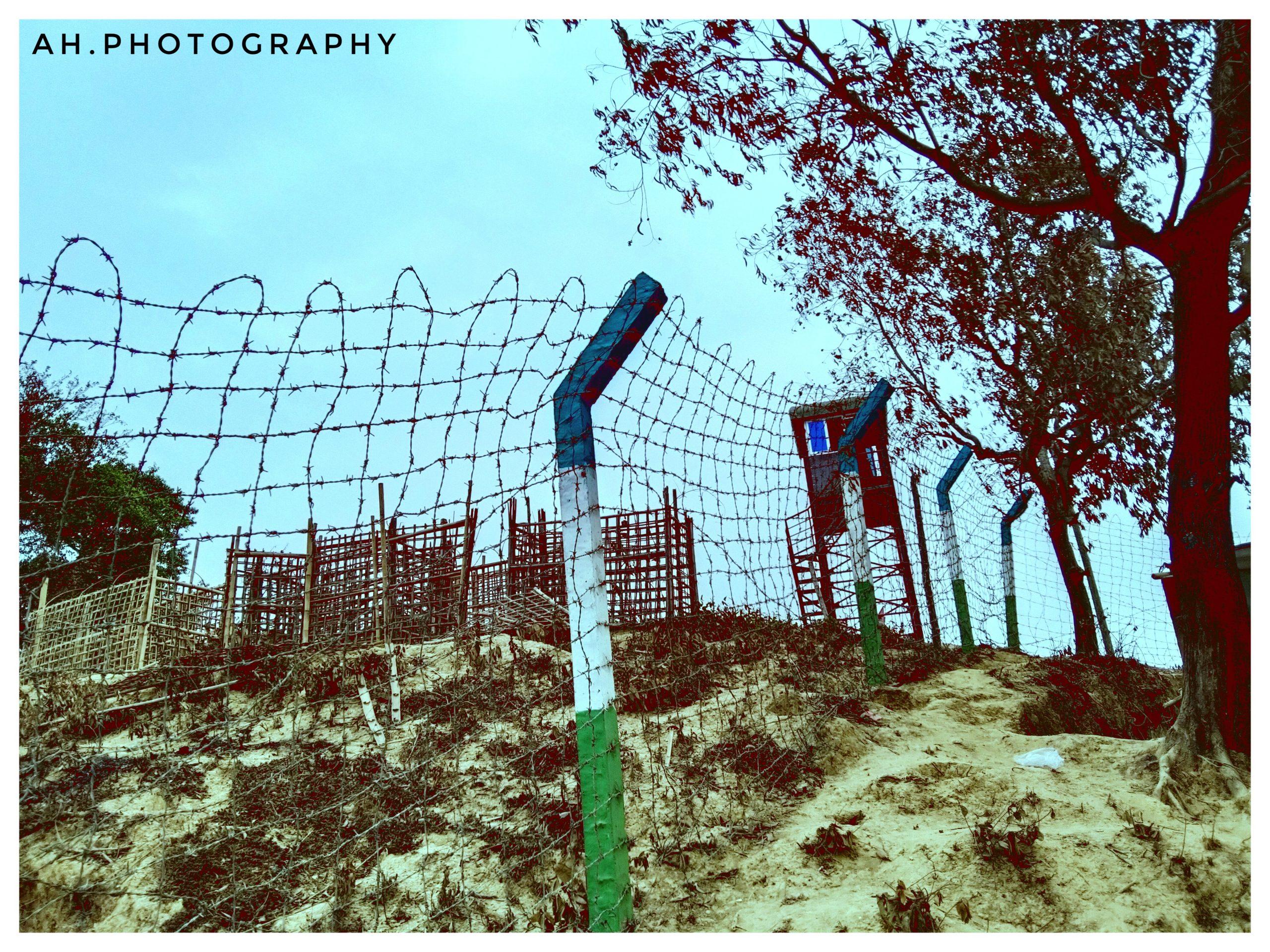Argentina court to investigate Myanmar war crimes against Rohingya Muslims As we approach International Genocide…
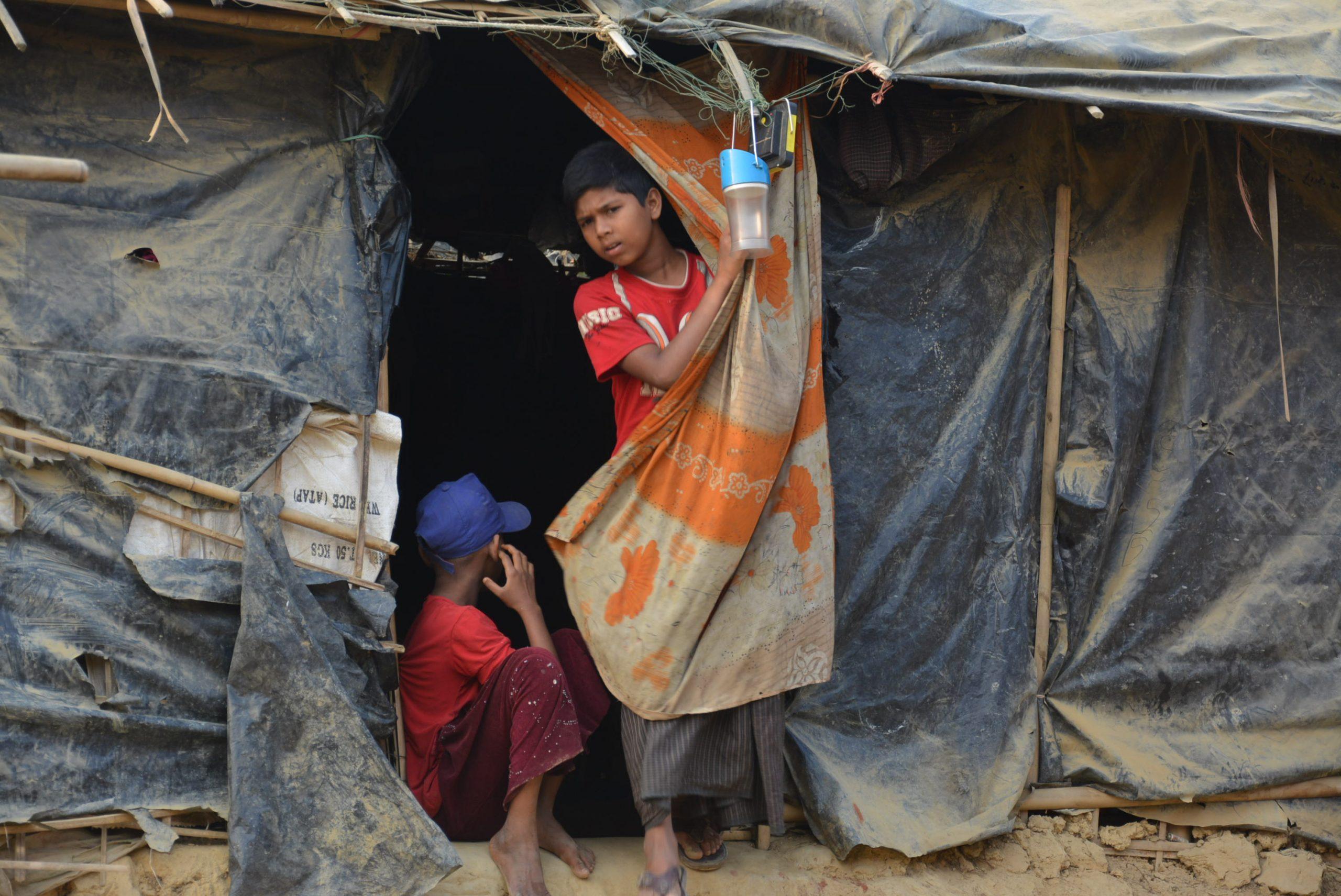
Rohingya are putting their lives at risk in search of a better life
Rohingya are putting their lives at risk in search of a better life
by Rohingya Abdullah Habib
To escape the genocide committed by the Myanmar military, nearly one million Rohingya have been taking shelter in the Bangladesh refugee camps since 2017. Now they are again fleeing, from these same camps to Malaysia in search of a better life. While taking this risky path, hundreds of people have died and countless others are arrested halfway through their journey.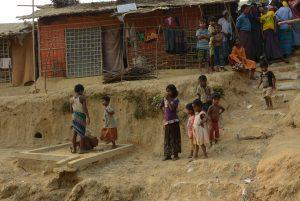
It has been almost five years that we, the Rohingya, have spent in the world’s largest refugee camp located in Ukiya district, Cox’s Bazar, Bangladesh. For decades, we have been treated as a stateless minority, with basic rights taken away, and even denied freedom of movement in our homeland of Arakan (Rakhine) State, Myanmar.
In August 2017, the Myanmar military started a killing operation against the Rohingya Muslims following an August 25th attack on 29 Police posts in three towns of Arakan made by the Rohingya armed group namely ARSA- Arakan Rohingya Salvation Army.
Two days after the clash, the Myanmar government issued an order to clear the area to eliminate the armed group who led the attack. However, the military went much further, committing atrocities against the Rohingya; killing, raping, detaining, burning houses, and destroying religious properties. With no other choice, the Rohingya people were forced to leave their motherland and find shelter in Bangladesh, as they had in previous waves of mass displacement. The way to Bangladesh from Myanmar was not easy. Many of us crossed rivers in small boats, others spent two weeks reaching the border, and hundreds more lost their lives on their journey due to hunger and injuries inflicted by the Myanmar military. 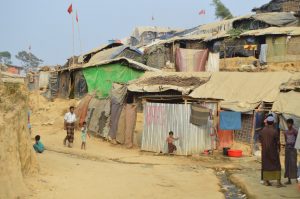
When almost one million of those refugees found shelter in Bangladesh, we felt as if the Almighty had blessed us with a new life, even though that new life was in a refugee camp. But as time passed, we began to recover from the trauma we had experienced at the hands of the Myanmar military and struggled to survive in the camps as refugees. Meanwhile, ARSA has had influence over the administration of almost every camp and it has created much unnecessary tension, even leading to kidnapping and gang wars between ARSA and other groups.
The Bangladesh government began to turn the refugee camps into concentration camps, adding fencing and setting checkpoints in every camp. Thereafter, Rohingya refugees lost the freedom to move freely even inside the camps. All these restrictions did not end gang activities and drug business because many of the authorities had become corrupt and the consequences of this corruption have severely impacted the lives of ordinary Rohingya people. Some families have even escaped the camp due to such conditions and returned to Myanmar with the NVC-National Verification card which the Myanmar government has been trying to force Rohingya to hold since they were in Myanmar. The card makes it clear that Rohingya are not considered to have equal rights as others in Myanmar.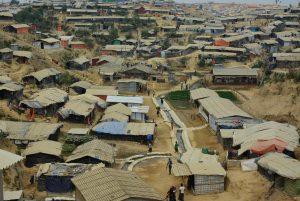
As these tensions were growing in the camp, the Bangladesh government made a decision to halt all Rohingya from doing business. Following the decision, all markets, shops, and stalls were demolished around the camp though these were the main income sources for 70% of Rohingya refugees who relied on them to meet their family needs. After successfully demolishing the markets, 90% of the Rohingya have become jobless as 20% of the refugees who work out of the camp as laborers were also restricted from leaving the camp for work. Refugees now have no way to earn a living and have once again been traumatized by their treatment in the camps.
As a camp resident, I interviewed some of the people from the camp on the topic, ” Life without livelihood in the camp.” One of the refugees told me, “We are not just refugees, we are human beings, and every human being has the right to make a living. Though we are living as refugees, we have this right. We were trying to stand up on our own feet but we are being stopped by having our sources of income destroyed. Being prevented from establishing ourselves, seen only as a refugee, I felt that maybe we were not human the same as other human beings”.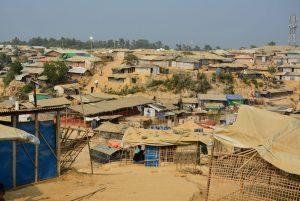
When people have no choice, some of them get involved in immoral activities for the sake of money. “Who has forced them to be involved in such activities but the government of Bangladesh?” said one refugee. Another interviewee added, ”It’s been two years now that people have been leaving the camp. Some fled to India in 2019 because they had heard “There are more facilities for refugees in India.” However, on the way, some were arrested, and others faced worse conditions, having been trapped by brokers and human traffickers.
By the middle of 2019, only 100 persons were resettled in the Indian refugee camps but the majority still faced challenges fulfilling family needs without income in Bangladesh and many were trying to leave for Malaysia by boat or road through Myanmar and Thailand.
One of the Rohingya I spoke with shared why refugees are leaving to reach Malaysia: ”Most of our people have been facing many difficulties in the camp: no livelihood, no freedom of movement, and most importantly we don’t see a future here. Young girls are being taken because there are many Rohingya youths who couldn’t find girls over there to get married to, so their parents find girls for them and make an agreement with the girl’s parents as their daughter will be taken for free which is why girls’ parents agree to send their daughters”. 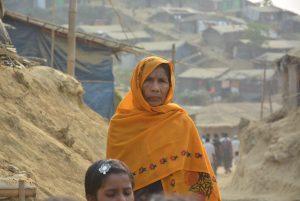
“Human traffickers can easily exploit us,” he said. ”They promise people that their children won’t face any hardships. The traffickers have some links with the Burmese military and take a huge amount of money, approximately 5 to 10 million kyats per head” but only 50-60% could reach their destination. Many do not have water or food and walk two to three days on foot non-stop enduring these conditions. Of the specified price, the trafficker takes half of the payment at the start and the rest must be paid when they are close to their final destination. Sometimes human traffickers beat travelers up and send videos to their families demanding that they pay the remaining 2 million, 3 million or 5 million kyats if they want their child to live. Traffickers have even raped girls. Besides these hardships and struggles, many are arrested or die halfway to their destination. Often their money and lives are considered worthless, and their family members and spouses cannot properly bury the body of the deceased.
According to several media and news journals, thousands of Rohingya travelers were sentenced to 5 years in prison by the Junta for illegal traveling allegations. Those Rohingya were traveling from Maungdaw township or any other town in Rakhine state. The data says, ” Nearly 700 Rohingya Muslims from western Myanmar’s Rakhine state have been arrested over the last six months trying to reach Malaysia and those underage children were also put in prison”.
According to a recent RFA-Radio Free Asia report “In December, a total of 270 Rohingya were arrested for immigration law violations. Two dozen Rohingya were detained in January, 135 in February, 14 in March, 35 in April, and 124 in May, for a total of 602 people”. Thereafter, In the last month on May 21, A boat capsized and sank in the Bay of Bengal and the boat carrying 90 Rohingya to Malaysia during a storm hit a boat and was crushed. 25 of the 90 passengers died and some of the passengers are still missing. One passenger’s family said, ” I received a call from my daughter-in-law who was going to Malaysia to join her husband with three of her kids. Her last words were “pray for us, our boat is sinking.” I tried many times to call her but couldn’t get through”. 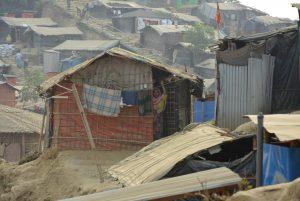
Another passenger who experienced the journey said, “It is easy until we are within the Arakan state but when we leave Arakan state and enter another state, traffickers face big challenges to escape from the eyes of the people and the authorities of that area. If we managed to reach a fixed place, there was always a dark room at each point where we would stay for 5 nights together, male and female. We had one meal per day and there was only one bathroom for all of us. I used to ask myself, ‘why should we face these conditions after paying such a massive amount of money”, she added. It was her good luck, that she as able to return to her family as their group was arrested half-way while the underage travelers were sent back to the guidance of their relatives and she was one of the underage travelers. But in some case they jail the children)
The smuggling of Rohingya to Malaysia from the Bangladesh refugee camp is not a new issue, as irregular migration to Malaysia has been happening since 2012. Within a week, nearly 40,000 people fled to Malaysia by boat to escape communal violence occuring across Arakan State in 2012 and hundreds of people lost their lives by boats capsizing. The issue has become a constant problem for the entire Rohingya community. It is happening because human beings have no option to stay in their place of origin, wherever it may be. Meanwhile, many travelers have to pay the trafficking fee in three portions; the first payment at the place they started, a second payment in transit, and the third payment as they reach their destination. Some Rohingya have to pay additional boat fees. “In the hands of these gangs, Rohingya refugees are like a product being displayed, sold and stolen as smugglers compete to buy them and sell to the next smuggler,” says a migrant who was arrested halfway through her journey.
News of arrested and missing travelers is still often heard, for example the 59 Rohingya Muslims who were found on June 4th this year by Thai authorities, abandoned in the Taung Island in the southern province of Saitan. Luckily, Thailand has allowed them to stay in Thailand as refugees. According to the sources, human traffickers currently continue to collect other Rohingya people from the camp to take them to Malaysia, but these people will have to take a land-route as it is monsoon time. Just two days ago, 27 more were arrested by the authorities.
Why do they do it? Because we are all losing hope.



